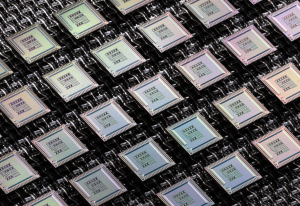LONDON – The UK’s Defence Science and Technology Laboratory (Dstl) has released a significant research paper titled “Quantum Information Processing Landscape 2020: Prospects for UK Defence and Security” in collaboration with the Ministry of Defence (MOD) and UK Strategic Command. This paper emphasizes the potential of embracing quantum technology to revolutionize military decision-making, enhance Artificial Intelligence (AI) capabilities, and achieve decisive advancements, according to a press release published on EuropaWire.
Dstl’s report highlights the capability of commercially available quantum computers, known as ‘annealers,’ to dramatically accelerate the execution of AI software based on neural networks. Unlike traditional digital computers, quantum annealers can execute neural networks in a single machine cycle, offering unprecedented speed and efficiency.
In the short term, quantum neural nets could revolutionize Quantum Information Processing (QIP), enabling rapid analysis of vast data sets to identify anomalies and changes in near real-time. This capability would significantly enhance military data processing capabilities while freeing up human resources for more complex tasks.
Over the next 5 to 10 years, QIP technologies could find applications in various military domains, including financial trading, control systems, sensor data processing, machine learning, and artificial intelligence. Dstl’s report is open for input and comment from the defence community, with key findings and recommendations expected to inform future investment decisions.
Gary Aitkenhead, Dstl Chief Executive, highlighted the transformative potential of quantum technology, emphasizing its role in enhancing national security and driving economic growth. The report underscores the UK’s leadership in Quantum Information Processing and outlines a clear roadmap for future development in the field.



















